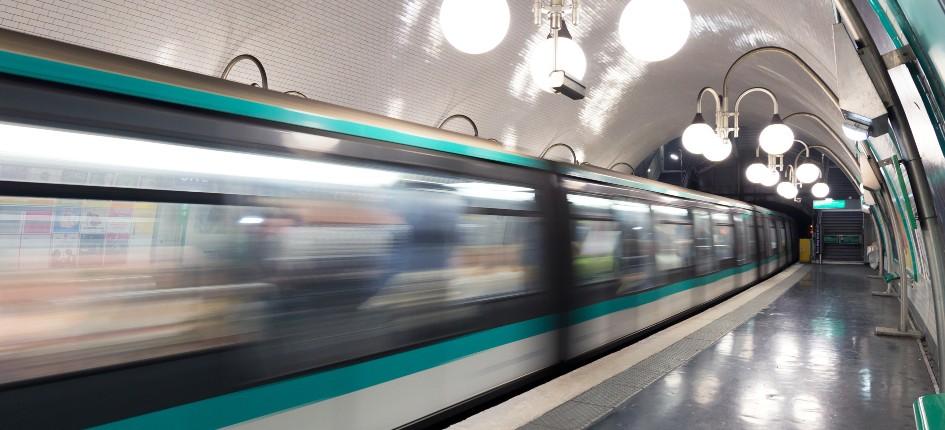The ATP business area (Automatic Doors for Public Transport) of Gilgen Door Systems AG offers platform door systems for track-bound public transport with a focus on the tube, suburban railroad and people mover sectors. In the period from 1991 to the present day, the company has already won and successfully completed more than 30 major international projects (worth over CHF 700 million) in France, Hong Kong, the USA, China, Taiwan, Sweden, Australia, the United Arab Emirates and the United Kingdom.
What criteria should suppliers use to select their target markets in the infrastructure sector?
First of all, you should check whether there is medium- or long-term potential in the specific infrastructure sector in the target market. Furthermore, a company has to check the local general and specific framework conditions that have to be fulfilled when realizing a public contract. This also includes analyzing the market shares of competitors. Trade relations and framework agreements may already exist between Switzerland and the target market. References from potential public clients can give companies an initial impression and save them a lot of trouble. Furthermore, you should consider whether medium- to long-term customer loyalty could arise from the potential order, for example through follow-up business such as maintenance contracts, technical support or the supply of spare parts. The political situation of a country should not be disregarded either, as it has a major influence on most economic activities in the market.
How did you succeed in partnering with a consortium or EPC contractor?
In the case of the platform doors project (Façades de Quai) for the Grand Paris Express - Line 15 South project, we first of all established a business connection with the client SGP (Société du Grand Paris) over a number of years. At the time of the public tender, several large French groups then applied to us for collaboration in this strategically attractive business field. We chose the partner best qualified to meet our needs. As early as the qualification phase for this project, we concluded an exclusive agreement with the company in question as part of a consortium under French law. With this organizational form, we were able to beat our international competitors in the tender.
How do you deal with public sector clients?
You should at all times treat public sector clients with respect and level-appropriate expertise. Regular communication at all levels is also important. Consistent monitoring of contract requirements (deviations, additional requirements, etc.) is indispensable. What’s more, in the best case scenario, companies work in a solution- and goal-oriented manner with a focus on the contractual timetable. Financing: What needs to be considered and who is responsible for which areas? You should allow enough time to carefully define payment terms and plans, and to set contractual penalties for a worst case scenario. In addition to this, it’s important to take care of bank guarantees and organize any advance financing. Another important point is retention and under what conditions this is granted.
As a Swiss SME, how are you or were you able to compete with foreign competitors or local companies?
In order to be able to keep up or assert yourself, it is important to make the best technical and financial offer. Good knowledge of the market and relevant market prices is definitely recommended. Ideally, Swiss SMEs will correctly divide up the services to be provided locally and those to be imported from Switzerland.
What are the strengths of Swiss SMEs? Which Swiss technologies, knowledge and offerings are particularly in demand in foreign target markets?
Swiss SMEs have a high level of expertise in product management and engineering. We always work with state-of-the-art technologies and match these with the required service life of an infrastructure. In addition, our solutions with interfaces to so-called “value added features” are extremely popular. These value added features meet specific customer needs and can be upgraded during a product’s lifetime. If there are changes in an ongoing project, we Swiss usually react flexibly and with commitment. In general, it can be said that customers all over the world appreciate the reliability of Swiss companies in terms of quality, adherence to deadlines and the performance of their systems.
What regulatory and logistical specifics need to be taken into consideration?
We advise other Swiss companies to carefully analyze work regulations, construction site regulations, the influence of trade unions, etc. in advance. In our sector, framework and safety conditions are often completely different for each type of project. For example, in the area of platform doors in particular, a decisive factor is whether it’s a retrofit (modernization of an existing tube line during the night) or a new installation (daytime work with no services in operation).
What cultural or geographical specifics need to be taken into account?
When preparing a bid, Swiss SMEs are well advised to have qualified staff who are well acquainted with local conditions such as the culture, language, experience in working with local public employers, etc. It is important that the potential client feels understood, accepted and supported by the company involved at all times.
What basic advice would you give other Swiss SMEs for a successful market entry?
We advise companies to always be selective when choosing projects. This is achieved through careful and far-sighted risk analysis in advance. You should never underestimate risks and should also take out financial insurance against them at an early stage.



